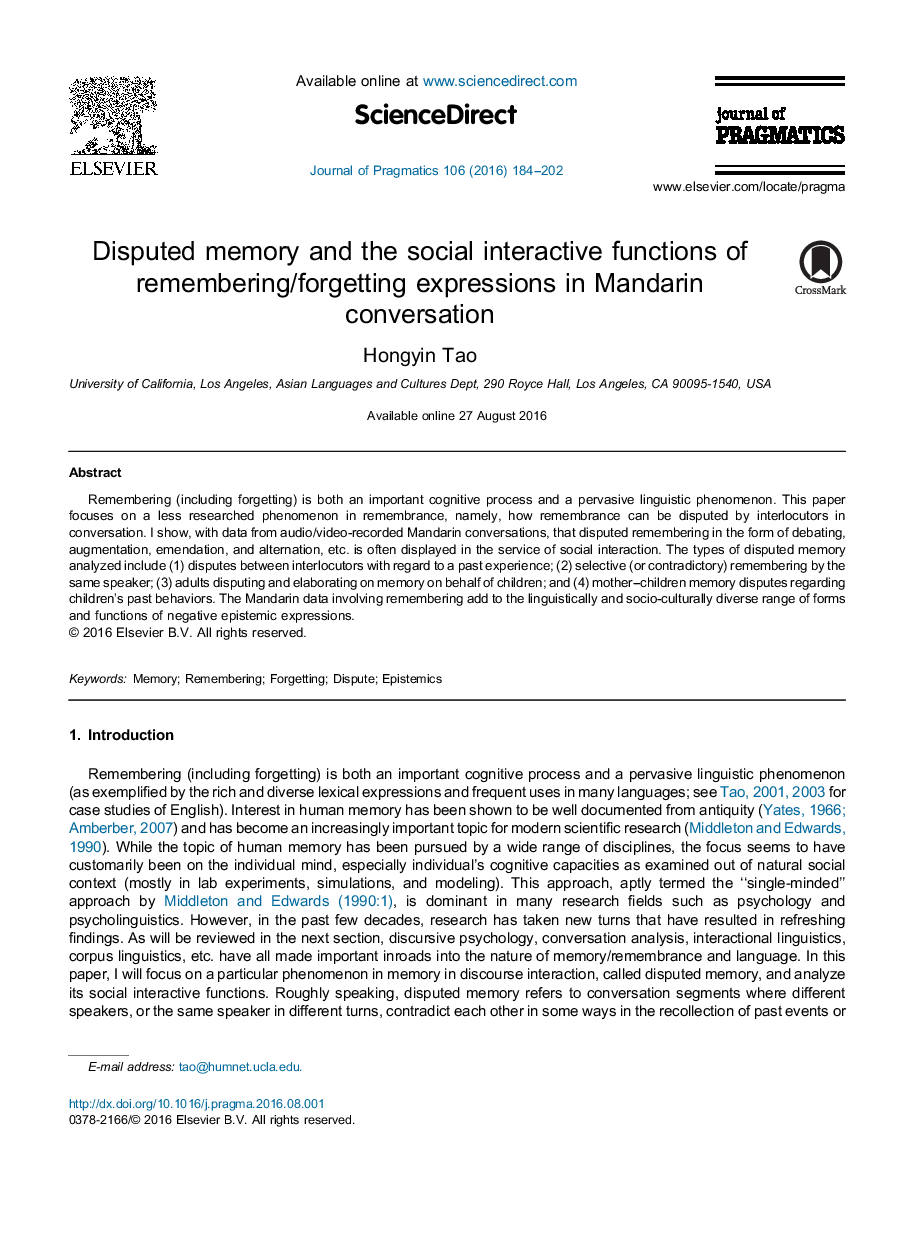| Article ID | Journal | Published Year | Pages | File Type |
|---|---|---|---|---|
| 5042761 | Journal of Pragmatics | 2016 | 19 Pages |
â¢Remembrance can be disputed by interlocutors in conversation.â¢Disputed memory takes place between interlocutors and within the same speaker as well as in various adult-child interactions.â¢Disputed remembering in conversation is often not due to cognitive failure but is employed in the service of social interaction.
Remembering (including forgetting) is both an important cognitive process and a pervasive linguistic phenomenon. This paper focuses on a less researched phenomenon in remembrance, namely, how remembrance can be disputed by interlocutors in conversation. I show, with data from audio/video-recorded Mandarin conversations, that disputed remembering in the form of debating, augmentation, emendation, and alternation, etc. is often displayed in the service of social interaction. The types of disputed memory analyzed include (1) disputes between interlocutors with regard to a past experience; (2) selective (or contradictory) remembering by the same speaker; (3) adults disputing and elaborating on memory on behalf of children; and (4) mother-children memory disputes regarding children's past behaviors. The Mandarin data involving remembering add to the linguistically and socio-culturally diverse range of forms and functions of negative epistemic expressions.
